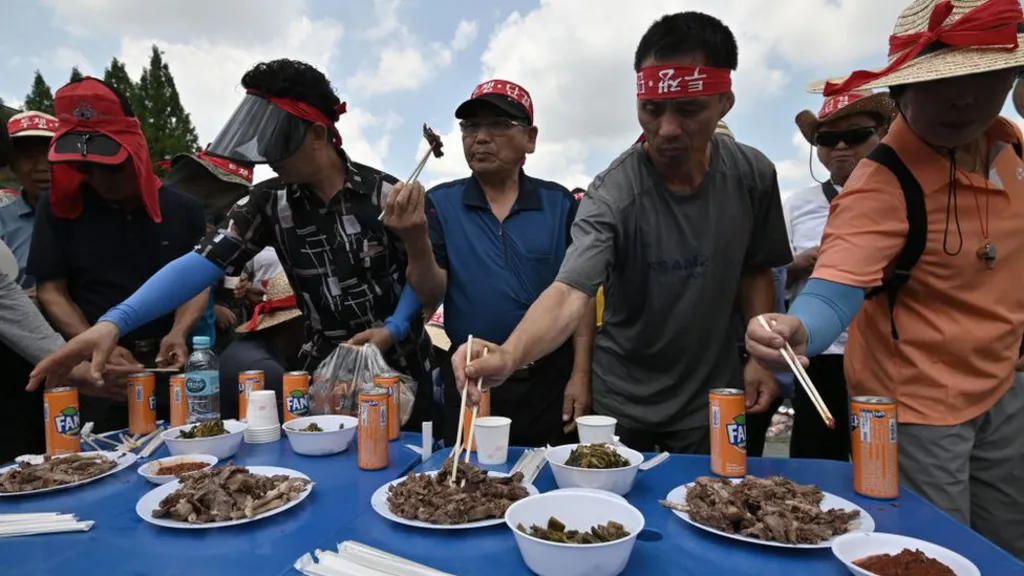“Do you eat dog?”
It is among the most controversial questions a foreigner can ask in South Korea – although the reaction and answer often depends on the age of the person asked.
“It’s so tiring, I always have to clarify that I have never eaten it. Canine dishes are mostly for the elderly in South Korea, but foreigners often generalise the practice,” says Park Eun-kyoung, a consultant in her 30s currently working in Germany, who admits to finding the question offensive at times.
“It carries a negative connotation, implying that Koreans eat something highly inappropriate and this culture is barbaric.”
But the days of fielding questions like these look numbered: earlier this week, South Korea’s government passed a new law to ban the breeding, butchering, distribution and sale of dogs for meat by 2027.
It will effectively end a centuries-old practice. Historically, cows were highly valued and, explains Dr Joo Young-ha, an anthropology professor at the Graduate School of Korean Studies, they were so prized a government permit had to be obtained to slaughter them up until the late 19th Century.
And so, other protein sources were needed. For those living in the Korean peninsula, dog meat was one of the best options, enjoyed by people across the class spectrum, although there were always those who avoided it.
But much like any other meat, well-loved dishes using the product emerged, such as dog meat soup, called “bosintang”, and boiled dog meat slices. Speak to older South Koreans, and many still extoll its virtues as a delicacy which is easy to digest and boosts energy, especially during a hot summer.
So it came as a shock to many during the 1988 Seoul Olympics – at that point, the largest international event South Korea had ever hosted – when criticism of dog meat consumption began hitting the headlines around the world.
Read more at BBC.com



